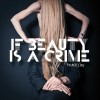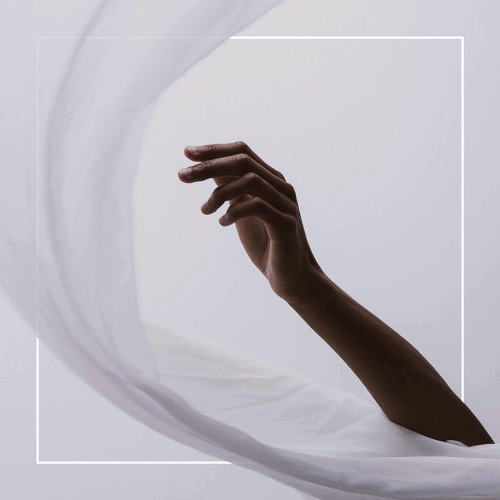 “You never seemed to be waiting for me, but we kept meeting at every turn of the paths, behind every bush, at the foot of each statue, near every pond. It is as if it had been only you and I in all that garden.”
“You never seemed to be waiting for me, but we kept meeting at every turn of the paths, behind every bush, at the foot of each statue, near every pond. It is as if it had been only you and I in all that garden.”
A man and a woman meet at a social gathering in a magnificent baroque chateau. He claims that they met the year before, in Marienbad, and that she is at the gathering waiting for him. The woman, however, claims that they have never met before. Time and space elide, linear narrative disintegrates, identities dislocate.
Many years later Mi (Mira Romantschuk), away from her native Finland, is in Paris, working as a fashion model. There she meets L’au (Laurent Leclère), a composer of soundtracks. They have never met before, of that each is certain, but they nevertheless fall immediately and passionately in love, before moving to a secluded cabin the woods of Finland to concentrate on each other, and on the music they have started creating together.Where tango and technology kiss, where samples and sensuality caress, where Annette Peacock is seen strolling the boulevards on the arm of François de Roubaix, that’s the space which If Beauty is a Crime occupies. Exploring, in the most subtle shades imaginable, a woozy and dreamlike territory where forms meet – the most earthy and sensual early 20th century chansons, the cool electronica of Giorgio Moroder, Brian Eno’s ambient abstractions, Portishead’s trippy whisper in the ear – Mi and L’au craft a beautiful album that plays to their respective strengths. Mi takes the Nico roll, the European chanteuse telling tales of love and of life in voice like cool blue velvet whilst L’au, this time eschewing acoustic guitars in favour of samples and electronic instrumentation, builds compositions that work as short forms songs, but which bear the unmistakable imprint of his soundtrack and soundscape sensibility. Sometimes they sing apart, sometimes they sing together. The words seem to exist on the edge of comprehension, seeping in like your lover’s voice at the edge of sleep.
“Territory is an Animal” fuses sensuality with vulnerability, its martial drum rolls, proud delivery and wounded heart alarming like Charlotte Rampling in The Night Porter: bare breasts, black gloves and a Totenkopf peaked cap. “Limouzine” is a melancholy tale, with weeping strings and a luscious percussive tone like a gentle handbell, whilst the title track is a glacial and utterly beautiful poem, like the Kraftwerk of “Neon Lights” singing a tale of lost love, rather than an ode to the modern cityscape. “Tender Words,” with its background twinkling and soaring orchestration, is like a waltz in a ballroom with your dream partner, the feel of your hand their back, an intoxication at having them near, a dizziness from the dance, yet a nagging, creeping chill from your peripheral vision, the people watching from sidelines seem like ghosts. Is this Heaven, or some hollow, frozen purgatory?“Magic” is standing on the beach at night, the sound of the waves gently breaking, staring up at the moon as love and frustration mix, as if in a novel by Marguerite Duras. “Porcupine” is, perhaps, more muscular musically, but is nevertheless equally repressed and passionate at the same time, the waltz now turned from a dream into a nightmare. “Faces” could almost be the Jacques Brel of “Le Maquises;” “Valdren” is a heart-breaking lullaby in Mi’s native Finn, and “Silk” another parting kiss given over anaesthetized beat. “One Day,” again featuring the handbell percussion sound, is five minutes of ambient, dub bliss, all scuttling beats and tear-stained scales. On the closing track, “Warrior,” Erik Satie takes to the decks, and, its delicate, sustained piano notes drift off into the night, sending you out to walk the pathways of the chateau as if in a recurring dream. Melodies and sounds run like fugues through the album, disorienting the ear. Somehow, the songs never seem to solidify, they shimmer in abstraction, giving the album a delicious feeling that you can listen over and over again, without ever becoming overly familiar with its pieces.
Replacing the acoustic with the electronic, Romantschuk comments that “The bet was to make an album with a computer and new software… From now on we will study machines, meaning keyboards, drum machines, and computers in general.” Such a bold step could, potentially, have decimated the fragile beauty that the duo have summoned up on previous releases, but their controlled and intimate use of the electronic have, if anything, only enhanced it further. The album is a beautiful and sensuous treat, with sadness and sexuality in equal abundance.If beauty is a crime, then the law is an ass.
-David Solomons-


